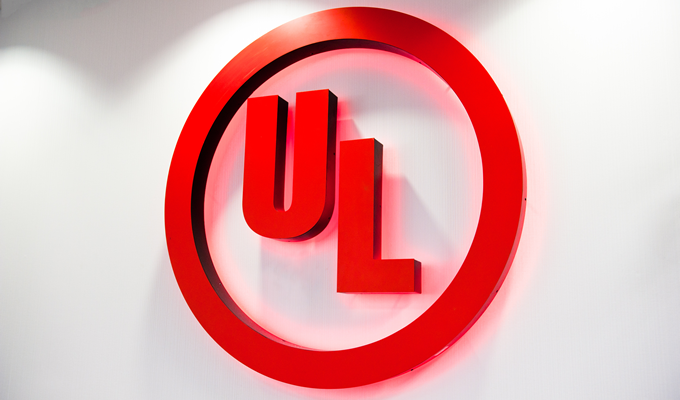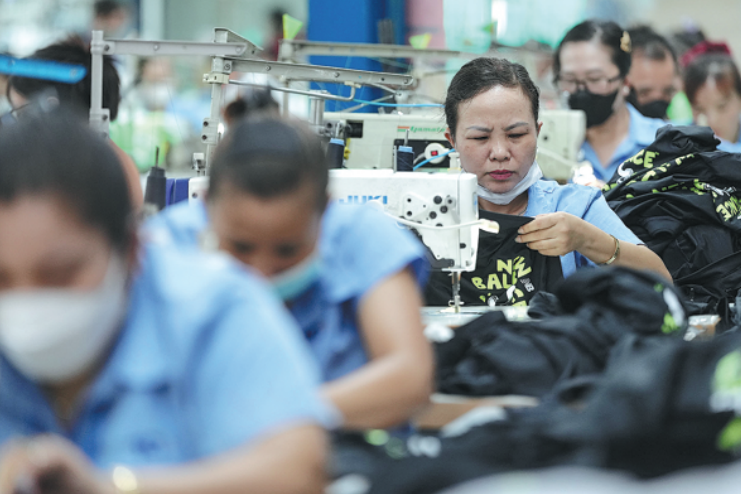UL's Changzhou battery lab to start in 2020


UL LLC, the Illinois-based safety certification group, will run its first global battery laboratory for power and energy storage in Changzhou, Jiangsu province, in April 2020, its top executive said.
Many opportunities come from China's fast-growing sales of new energy and high-end hybrid vehicles, on the back of government policy support for quality development, entrants with strong financial resources, and rapid development of digital and material technologies.
Keith Williams, UL's president and chief executive officer, said Changzhou is a center of excellence in China for building electric vehicles, batteries and chargers. It is therefore a natural choice of the company to locate its operations closer to its clients.
UL will build more labs in China as the country is currently witnessing a boom in industrial and consumption upgrade.
"We are very optimistic about the future of our business here, and we are interested in finding and building a presence to invest more than now," he said. UL needs to invest more because the industry is moving into the inland areas and it wants to follow this trend.
Under the plan, UL's new lab in Changzhou will provide a clutch of safety tests and solutions. These will include the following: battery safety design, battery performance and reliability verification, battery management system functional safety, vehicle-to-grid charging solutions, grid integration, battery ladder utilization, energy storage systems and functional safety services to China's new energy vehicle manufacturers and power battery makers.
"There can be manufacturing problems that could cause battery fires," said Williams, noting the batteries that are used in automobiles and high-tech products are high-precision products. It is necessary to ensure the product quality with the concept of delicate manufacturing. UL can help manufacturers understand how to make and use batteries more safely.
"Another area that we can help people in is with shipping, because batteries have to be shipped in safe transportation conditions," he said.
Eager to expand its global footprint and expertise in automotive services, UL announced the acquisition of kVA, a US-based technical and management consulting company that specializes in training and advising automotive developers and suppliers on the safety of autonomous vehicles and electrification of automotive systems, in June.
Supported by nearly 4,000 employees in China, UL runs six labs and offices in Suzhou, Shanghai, Guangzhou, Dongguan and Shenzhen. With its certification services and expertise in different fields, it assists domestic manufacturers from different industries export their products to global markets. Most of its work supports Chinese exports to North America, Europe, Japan and Southeast Asia.
It entered the Chinese market in 1980, and has so far provided certification services to over 22,000 Chinese manufacturers across the country.
The US company currently has over 14,000 employees operating in more than 143 countries, mainly distributed by its connected technologies business unit and retail and industry business unit.
Even though many carmakers from both domestic and global markets saw auto sales in China flatten or contract this year, this was balanced by the relatively stable sales of new energy vehicles and high-end cars, as well as hybrid vehicles, said Norbert Meyring, head of the industrial manufacturing and automotive sector for KPMG China.
"Digital technology is increasingly reshaping each sub-sector of the auto industry, including MaaS(mobility as a service), autonomous driving and new energy vehicles," he said, adding that in recent years, investment in the auto industry in China has spawned a number of innovative startups.
In response, auto manufacturers are putting digitalization higher on their agenda. According to KPMG's recent publication, Digital Gravity, digitalization is not a product but an enabler to have a new business model, with over 80 percent of executives in China seeing the need to rethink their existing models, and more notably, considering partnership models with tech-based entrants and even competitors.
He said young consumers in China no longer use a car for long years until it is beyond repair. Rather, they tend to change cars to keep pace with the evolution of automobile technologies. They want to experience the newest features like systems powered by new-age batteries.




































